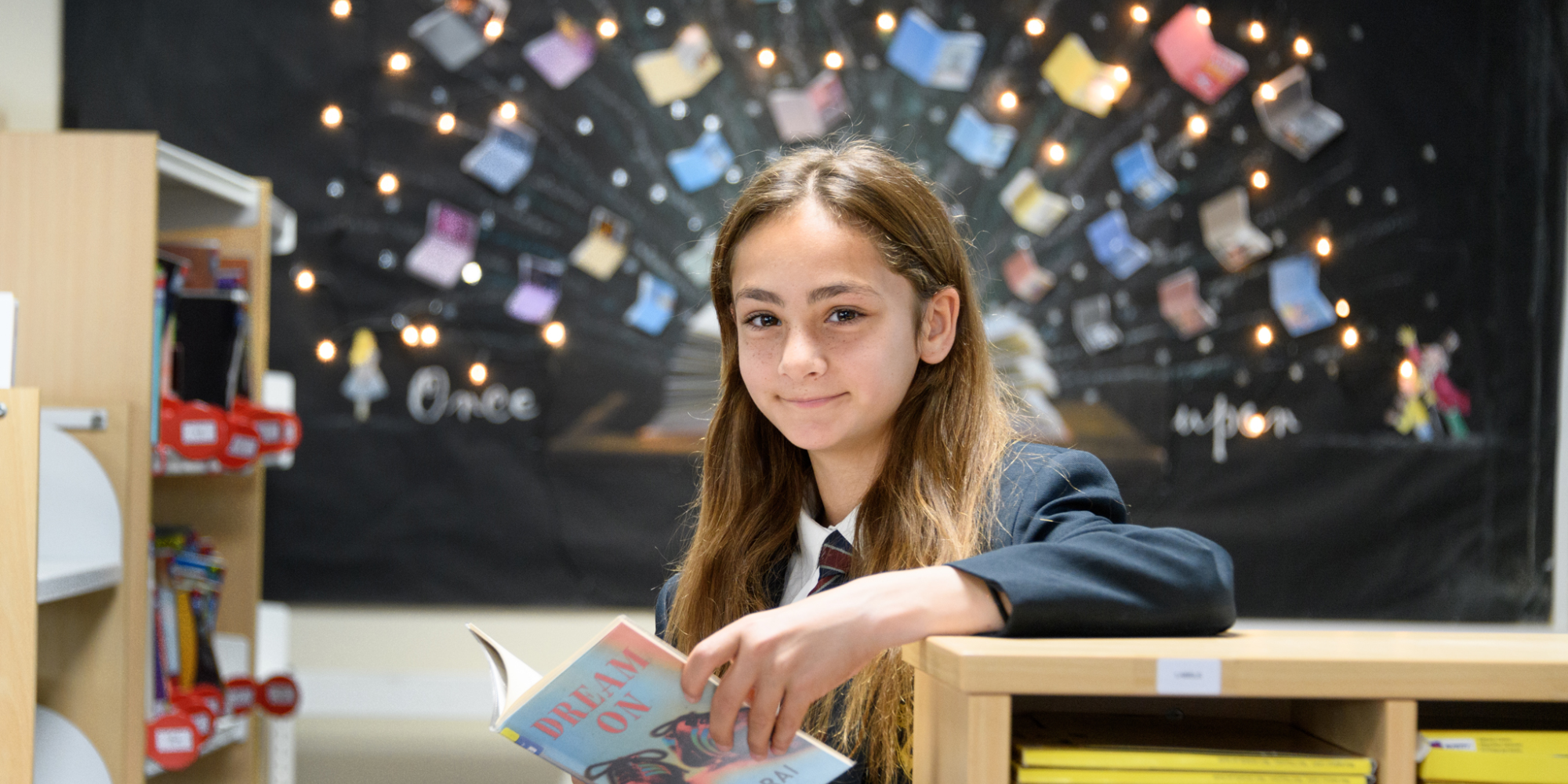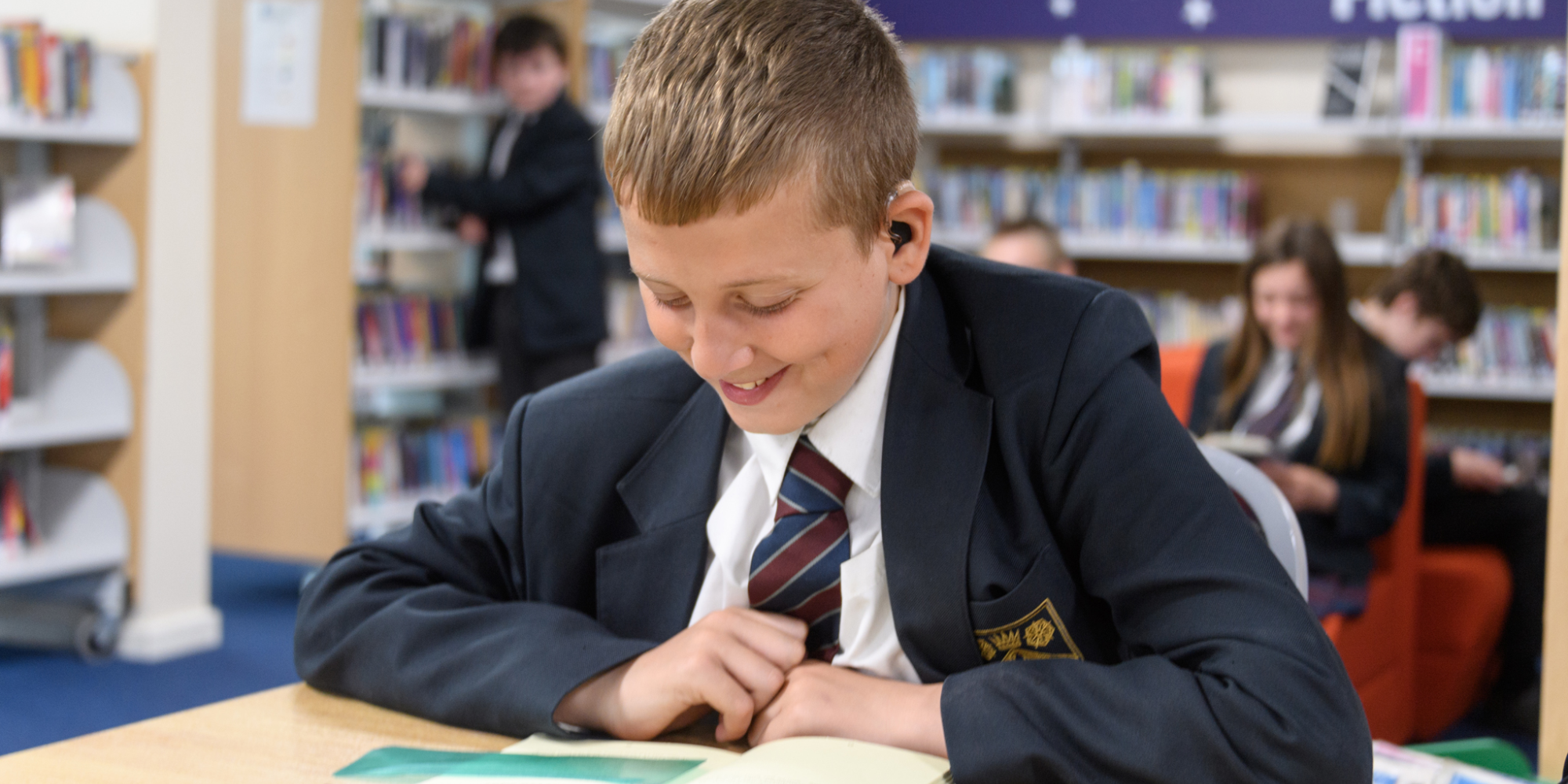Literacy
At Ormiston Denes Academy, we are working hard to promote our students’ literacy and ensure they all achieve to the very best of their ability. We believe all teachers are teachers of literacy. The key skills of reading, writing, and oral communication are what enable students to access all areas of the curriculum and wider society.
Our strategies for improving student literacy are drawn from the Education Endowment Foundation research base and best practice nationally (through OAT) and internationally. We are committed to systematically building our literacy provision from what research tells us work – not just the latest trend.
- Every student leaves the school with the literacy skills to succeed in the future.
- Those students who join the school not yet at age expected reading levels are supported in order to help them rapidly improve.
- Every student leaves the school with the communication skills required to be successful in the next phase of education, their future careers and in wider society.
This will be achieved through
- Our whole community modelling high-quality speaking and listening, reading and writing.
- Literacy being fundamental and specific to every lesson.
- Students being helped to lead their own learning.
- Building on the core literacy skills developed in the primary key stages.
Knowing the meaning of words and having the ability to decode language is crucial for child development. Therefore, the acquisition and command of vocabulary is key to their learning and progress across the whole curriculum. Research shows that the larger a student’s vocabulary the better able to comprehend and infer meaning. We are committed as a school to broadening our students’ vocabulary and narrowing the word gap that inhibits their academic progress.
Through curriculum planning, we explicitly address students’ vocabulary needs through direct-instruction and it is a key focus in the classroom. The explicit teaching about words and their meaning is teacher-led. As part of our school-wide process for developing students’ reading, the teaching of new vocabulary will be explicit and connected to foundational knowledge required in the lesson.
We hold the belief that to access education, work and society reading is a non-negotiable component to unlocking students’ potential. We believe it is our duty to accelerate students’ reading ability for all our students. In building a reading culture we aim that it is prioritised to allow students full access to the curriculum.
Equally, we believe students are entitled to experience a wide range of reading texts during their time at the school and that reading is a vital aspect for academic and wider development of each student. Reading should be challenging for all reading abilities and it is the role and responsibility of all educators to be aware of how reading develops so we can better support students.
To aid this, we have introduced the Ormiston Denes Academy 3 Reading Strategies as a focus in the classroom. These are:
- Quality, high level, academically challenging texts in every subject.
- Student hear high quality reading, every day in every lesson.
- Explicit vocabulary teaching in each lesson (when relevant to the learning).
These reading strategies have been a key focus for curriculum leaders and teachers alike. In the classroom, students will be exposed to a wide range of challenging non-fiction and fiction texts. During lessons, our aim is that all teachers model reading fluently – whether that is a short mathematics problem or a longer science text, as we believe subject literacy is crucial for learning in subject disciplines and for improved attainment.
Reading is seen by the whole school community as central to students’ being able to access their exams and show their understanding.
We place high value on reading widely and often students are encouraged to read books across a variety of genres. We have a library we are proud of with a range of interesting books for every learner and all abilities. To support students’ access, we run a timetabled library lesson within the English curriculum in Year 7 and 8. These are structured sessions where all students:
- Are supported to select and read age appropriate texts for use in home reading;
- Read aloud to a teacher, the librarian or anther adult during the lesson;
- Participate in library skills development sessions.
Please click here for the Read-Aloud Curriculum.
A key focus for the school has been the development of our reading intervention programme. This programme includes tailored phonics lessons (drawing from a DfE approved core synthetics phonics programme), the use of Lexia and the Catch Up Literacy supportive reading programme.
To support students who are struggling with reading and need help, we have three clear pathways:
- Pathway 1 is for readers who have a standardised score lower than 75 and are in need of bespoke phonics and reading support. They following a bespoke provision that uses components of the Phonics International structured synthetic phonics programme and additional resources, Lexia and a supportive home/reading programme.
- Pathway 2 is for readers who have a standardised score lower than 84 and in need of decoding and comprehension support. They are using the Lexia programme and are also engaged in the Catchup Literacy reading support programme.
- Pathway 3 is for readers who have a standardised score of 85-100 and they are supported in lessons by teachers. Readers at the lower end are also supported by the Catchup Literacy reading support programme.
To ensure that students get the right type of support, we run a series of assessments throughout the academic year. This includes a GLS test at the beginning and end of each year for Year 7-9 and any students in Pathway 1-3 in Year 10 and termly single word decoding tests and reading comprehension tests.
With the aim to support our students to develop their character, especially their confidence and behaviours for learning, we will have set our basic expectations for oracy – with a focus on courtesy and manners. All stakeholders are responsible for maintaining these expectations – every conversation is a chance to model the type of behaviours and spoken language we desire in our students/ children.
The development of speech, language and communication starts at an early age and has a direct impact on children’s social and educational outcomes, health and wellbeing:
- Children who do not have secure attachments will be less emotionally resilient and not be more able to make positive relationships.
- Children who do not experience regular empathic listening from adults are less able to learn, to use life well, to concentrate, to enjoy relationships and to be kind to others.
We have a key role in bridging the gap between students’ ability to communicate – in school, with staff and each other for their academic achievement and in preparation for the wider world.
As an academy we set high expectations which inspire, motivate and challenge students and these expectations are rooted in mutual respect. We take responsibility for promoting good and courteous behaviour both in classrooms and around the school and at all times treat students with dignity and as we would hope to be treated ourselves.
We work actively through pastoral sessions, in form time, assemblies and our PSHE lessons to teach students the behaviours that we expect of them.
Being able to communicate effectively in writing is a key focus for the school. Opportunities for extended writing have been built into both the KS3 and KS4 curriculum.

